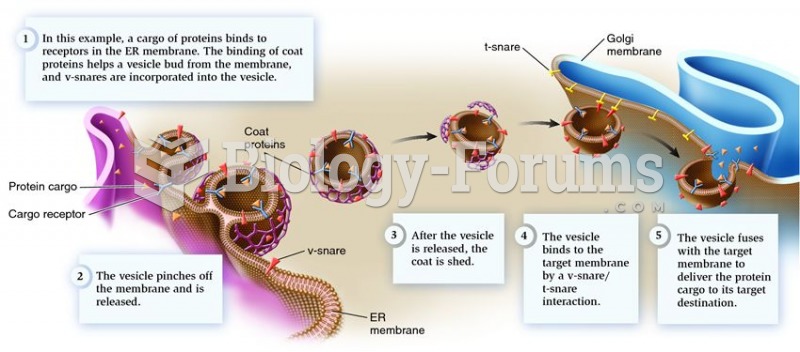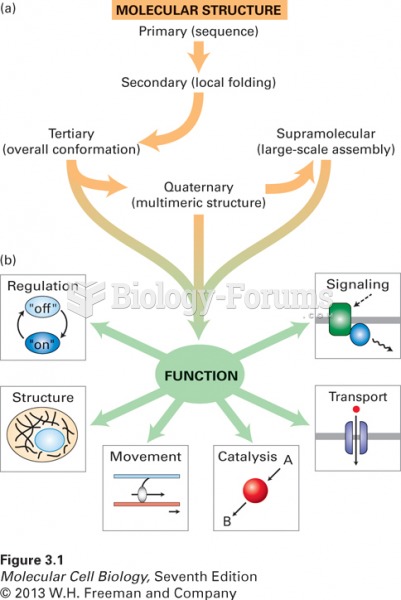|
|
|
Asthma cases in Americans are about 75% higher today than they were in 1980.
Cytomegalovirus affects nearly the same amount of newborns every year as Down syndrome.
The eye muscles are the most active muscles in the whole body. The external muscles that move the eyes are the strongest muscles in the human body for the job they have to do. They are 100 times more powerful than they need to be.
Over time, chronic hepatitis B virus and hepatitis C virus infections can progress to advanced liver disease, liver failure, and hepatocellular carcinoma. Unlike other forms, more than 80% of hepatitis C infections become chronic and lead to liver disease. When combined with hepatitis B, hepatitis C now accounts for 75% percent of all cases of liver disease around the world. Liver failure caused by hepatitis C is now leading cause of liver transplants in the United States.
Anesthesia awareness is a potentially disturbing adverse effect wherein patients who have been paralyzed with muscle relaxants may awaken. They may be aware of their surroundings but unable to communicate or move. Neurologic monitoring equipment that helps to more closely check the patient's anesthesia stages is now available to avoid the occurrence of anesthesia awareness.
 Second step in cotranslational protein localization: vesicle transport from the endoplasmic reticulu
Second step in cotranslational protein localization: vesicle transport from the endoplasmic reticulu
 The firing order is cast or stamped on the intake manifold on most engines that have a distributor ...
The firing order is cast or stamped on the intake manifold on most engines that have a distributor ...





